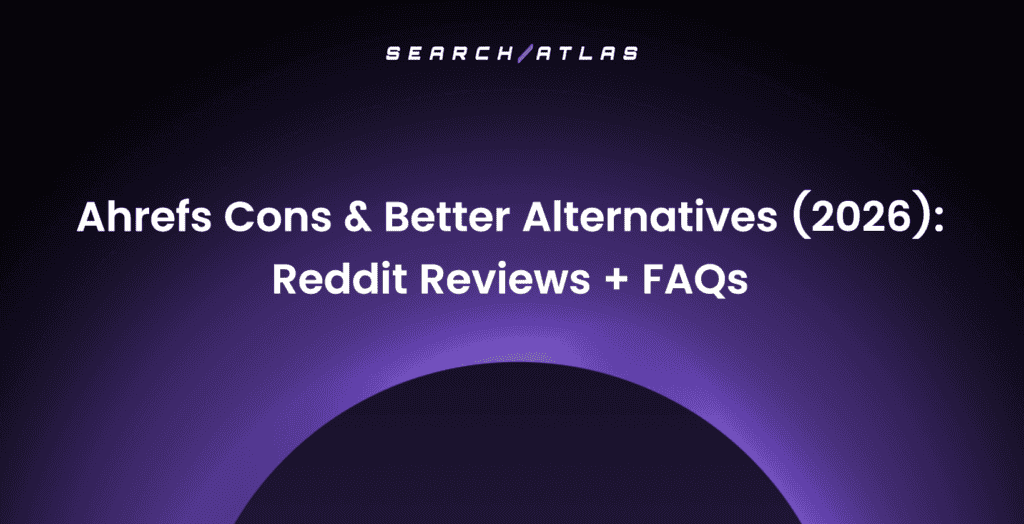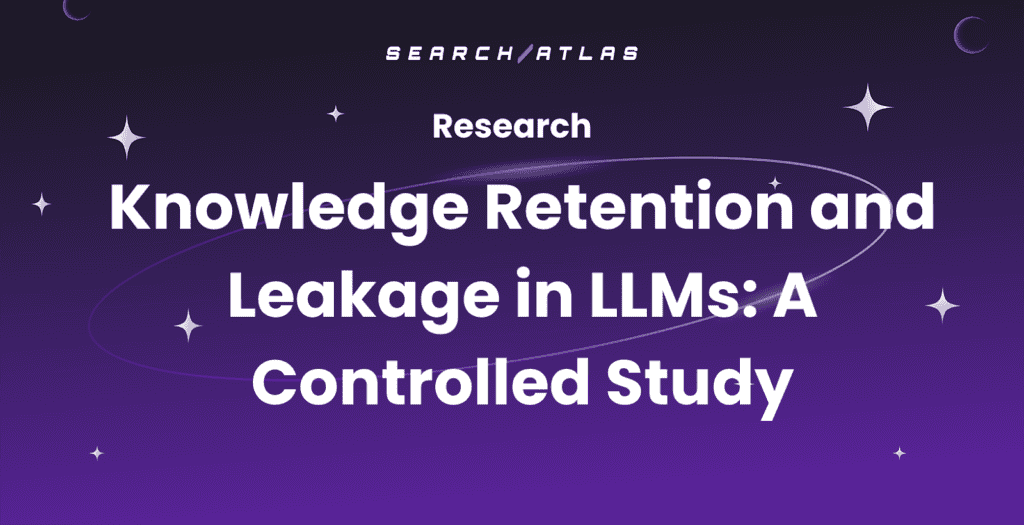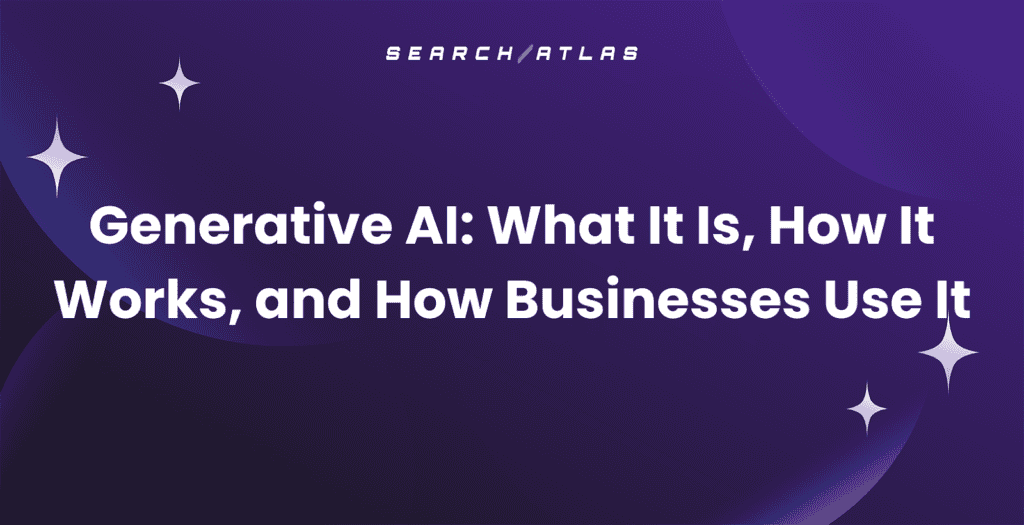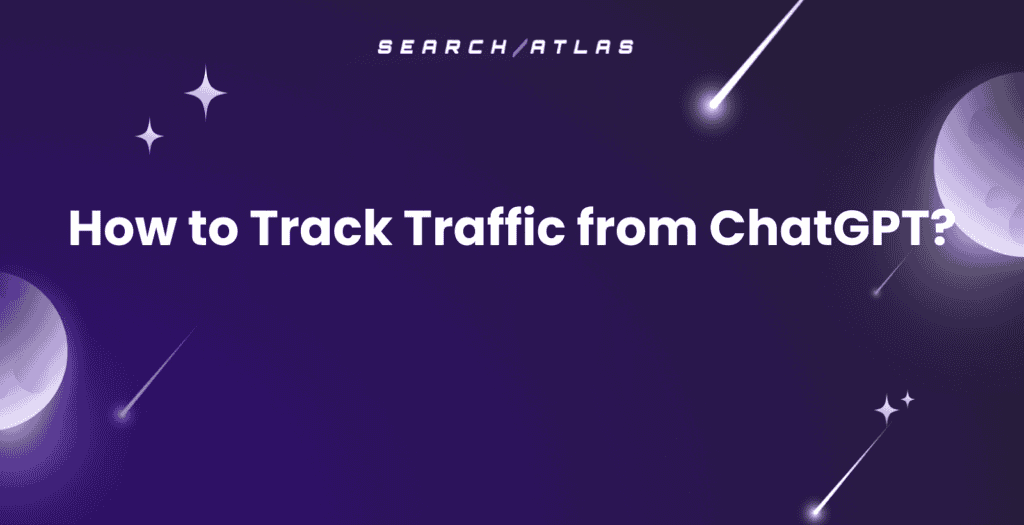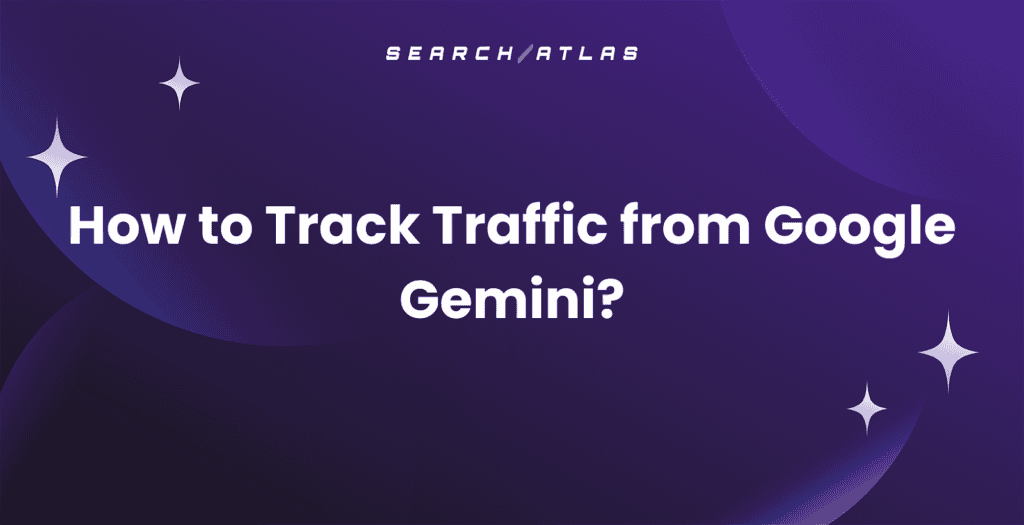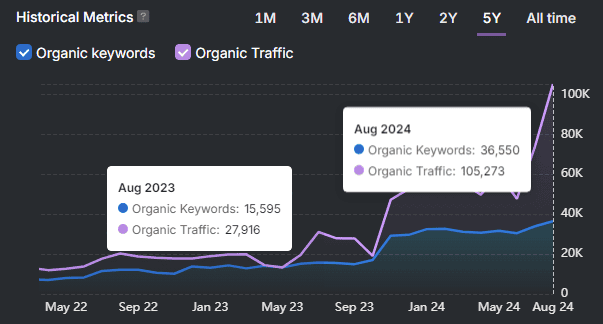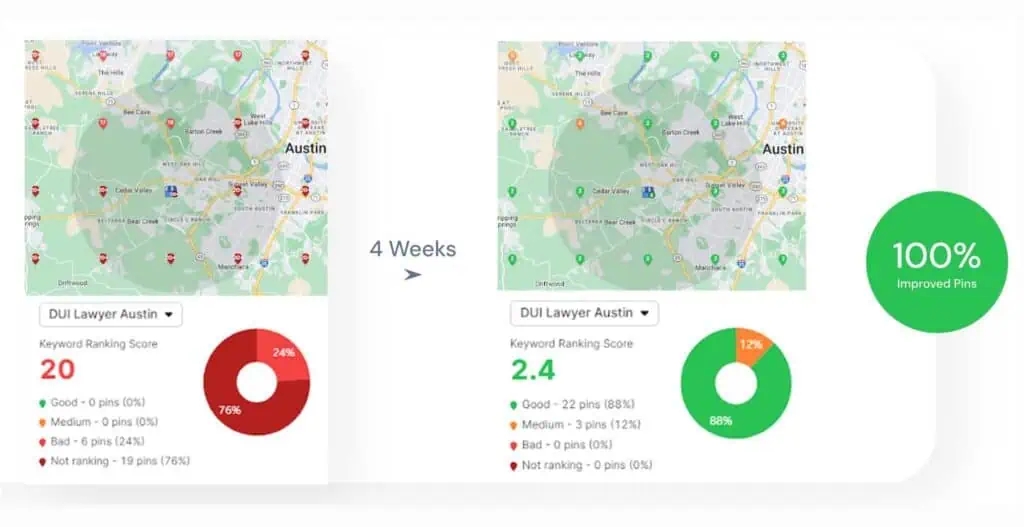Benefits of SEO marketing for every business include increased organic traffic, improved lead quality, stronger brand authority, and long-term growth at lower acquisition costs. SEO, or search engine optimization, improves how websites appear in search results and how they attract users with active intent. Businesses gain traffic, visibility, and conversions when search engines match their content with relevant queries.
The benefits of search engine optimization for business growth extend to every stage of the digital sales funnel. SEO drives discovery at the top of the funnel, supports engagement during research, and increases conversions at the bottom.
SEO advantages support every business type across local, e-commerce, enterprise, and B2B segments. SEO builds brand trust, supports content performance, and increases competitiveness in search. Unlike paid advertising, SEO delivers results around the clock, compounds over time, and strengthens customer insights.
The top 10 benefits of search engine optimization for every business are listed below.
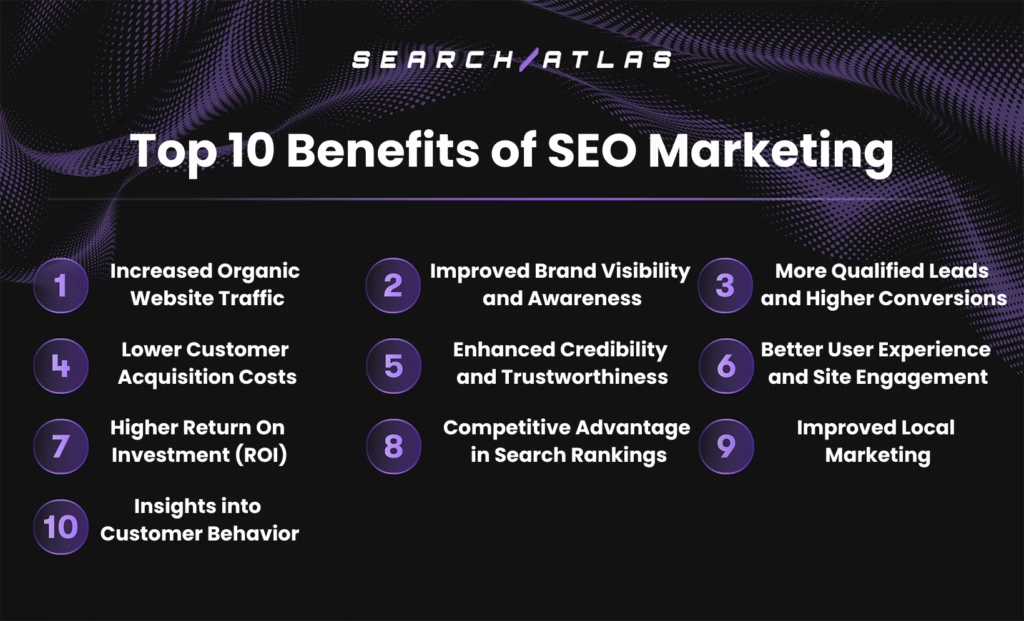
1. Increased Organic Website Traffic
Increased organic website traffic is the most direct and measurable benefit of SEO marketing for every business. When your website ranks higher in search engine results, it becomes more visible to users searching for relevant keywords. SEO marketing drives consistent, long-term traffic without the recurring cost of paid advertising. Unlike social media traffic, which depends on real-time engagement, or ad traffic, which stops when budgets run out, organic SEO traffic compounds over time and reaches users with active intent.
Users who arrive through organic search have clearer goals. They’re looking for information, solutions, or products. By aligning page content with search queries, businesses increase the likelihood of attracting visitors who are ready to act.
Whether you run a local service or a global ecommerce brand, ranking for commercial and informational queries directly translates into qualified organic SEO traffic that feeds every stage of the marketing funnel.
2. Improved Brand Visibility and Awareness
Improved brand visibility and awareness is a core advantage of SEO marketing for every business. High search engine rankings place your brand in front of users at the exact moment they are searching for relevant solutions. The more frequently your website appears on page one, especially for non-branded, high-intent keywords, the more familiar your brand becomes to potential customers. Repeated exposure builds recognition, even before a user clicks through or converts.
Search visibility contributes to top-of-mind awareness across the buyer journey. When users see your brand consistently in the search results, it signals authority and relevance. Over time, search visibility helps establish your business as a trusted source in its niche. Unlike paid ads, which are labeled and often skipped, organic rankings are perceived as more credible.
For companies trying to expand reach without inflating marketing spend, SEO offers a sustainable way to scale brand awareness across local, national, or international markets.
3. More Qualified Leads and Higher Conversions
More qualified leads and higher conversions are among the most valuable benefits of SEO marketing for every business. SEO attracts users who are actively searching for specific information, services, or products, meaning they’re already problem-aware and intent-driven. Targeting filters out low-quality traffic and brings in visitors more likely to convert into leads or customers.
Unlike broad awareness campaigns, SEO allows businesses to align content with every stage of the buying journey. Pages optimized for commercial-intent keywords, product comparisons, and solution queries serve users who are ready to take action. This level of relevance shortens the sales cycle and improves conversion rates across contact forms, product purchases, demo requests, or local service calls.
When paired with clear CTAs and optimized landing pages, SEO becomes one of the best acquisition channels for driving measurable business outcomes.
4. Lower Customer Acquisition Costs
Lower customer acquisition costs make SEO one of the most cost-efficient marketing channels for every business. SEO generates traffic through earned rankings that persist over time, unlike paid campaigns that require ongoing investment to maintain visibility. Once a page ranks well, it continues to attract visitors, leads, and revenue without additional media spend.
While SEO requires time and upfront effort, such as content creation, technical optimization, and link building, the long-term payoff reduces the average cost per lead or sale. Businesses no longer need to pay per click, impression, or view. Instead, they gain compounding value from every asset published.
As SEO campaigns mature, they deliver predictable, scalable growth with declining marginal costs, especially when compared to PPC, influencer partnerships, or outbound sales outreach.
5. Enhanced Credibility and Trustworthiness
Enhanced credibility and trustworthiness is a long-term SEO benefit that directly impacts user perception and brand authority. Users tend to associate top search engine rankings with industry leadership. When your website appears among the first results, especially for competitive queries, it signals to searchers that Google considers your content relevant, accurate, and reputable.
Trust is reinforced by SEO elements like secure connections (HTTPS), fast loading times, helpful content, and positive user experience, which are factors Google evaluates when ranking pages. Consistent visibility in organic results, combined with expert-level content and structured information, builds trust before users even click.
Over time, SEO turns your website into a credible resource within its niche, which increases brand loyalty, referral traffic, and earned backlinks from other trusted sources.
6. Better User Experience and Site Engagement
Better user experience (UX) and site engagement is a powerful secondary benefit of SEO marketing that directly affect rankings and conversions. Search engines prioritize websites that load quickly, are mobile-friendly, and follow a clear content structure, which are factors that improve usability for real people. Optimizing your website for SEO strengthens how users interact with your content.
When visitors find helpful content, intuitive navigation, and fast performance, they stay longer, explore more pages, and are more likely to take meaningful actions. These behavioral signals or UX metrics, such as time on page, scroll depth, and return visits, strengthen your organic rankings over time.
SEO-focused UX improvements don’t just support visibility. UX metrics improvements reduce bounce rates, support conversion goals, and make every visitor session more valuable.
7. Higher Return On Investment (ROI)
Higher return on investment (ROI) than other marketing channels makes SEO a strategic growth engine for businesses focused on long-term profitability. While paid channels like PPC or display ads deliver immediate traffic, their costs scale linearly with results. In contrast, SEO scales value. Each page that ranks continues to generate traffic, leads, and sales without repeated spending.
ROI measures how much revenue or value is generated for every dollar spent. SEO consistently delivers high ROI because it captures users with strong intent and compounds gains over time. Businesses that invest in strategic content, link building, and technical optimization often outperform other channels not just in cost efficiency, but in total revenue impact.
For companies looking to maximize output from limited marketing budgets, SEO ROI outpaces most short-term tactics in long-term financial performance.
8. Competitive Advantage in Search Rankings
Competitive advantage in search rankings is a strategic benefit of SEO that enables businesses to outperform competitors in organic search results. Optimizing your website for relevant keywords and providing valuable content secures higher positions in search engine results pages (SERPs), which makes it more likely for potential customers to find your business over others.
Competitive advantage in search rankings strengthens market positioning over time. SEO enables businesses to occupy more SERP real estate by targeting long-tail, branded, and informational queries across the funnel. Dominating multiple positions in organic results reduces visibility for competitors and increases brand recall through repetition.
Search engines reward websites that publish consistently, update content, and build structured topical authority. Businesses that invest early in SEO adapt faster to algorithm updates and retain rankings more reliably than those relying on paid visibility.
SEO builds long-term defensibility by creating a content footprint that compounds in authority and reach.
9. Improved Local Marketing
Improved local marketing and geo-targeted reach is a key benefit of SEO for businesses that serve specific cities, regions, or service areas. Local SEO focuses on optimizing your online presence to appear in search results when users look for nearby solutions. Ranking in the local pack (Google Maps listings) and for keywords with local intent (like “near me” or “[service] in [city]”) drives highly targeted traffic from nearby customers.
For service-based businesses, restaurants, clinics, and multi-location brands, local SEO increases foot traffic, phone calls, and form submissions. Optimizing your Google Business Profile, gathering local reviews, embedding location-specific keywords, and earning citations from local directories all strengthen your local presence.
When implemented correctly, local SEO connects your brand with high-intent users in your area, without the cost of traditional offline advertising.
10. Actionable Insights into Customer Behavior
Actionable insights into customer behavior are a byproduct of SEO that strengthens decision-making across marketing, sales, and product development. Every keyword your website ranks for reflects how real users think, speak, and search for solutions. Through SEO analytics (like search queries, click-through rates, bounce rates, and engagement metrics), businesses gain a direct window into user intent and interest.
Actionable insights into customer behavior help uncover which topics resonate, what content paths convert, and where friction exists in the buyer journey. By continuously analyzing user behavior, companies refine their messaging, adjust their targeting, and optimize the customer experience at scale.
SEO doesn’t just drive traffic. It reveals what your audience actually wants through metrics like bounce rate, so you build smarter strategies around real demand signals.
How Effective is SEO?
SEO is highly effective as a long-term strategy for increasing visibility, attracting qualified traffic, and generating revenue with compounding returns. SEO remains one of the top-performing channels in digital marketing because it targets users with active intent who are already searching for solutions, products, or services. Search engine optimization is more efficient and conversion-friendly compared to channels that rely on interruption or cold outreach.
Studies consistently show that SEO drives a significant share of all website traffic, often over 50% for B2B and informational sites. Organic search delivers 1,000 %+ more traffic than organic social media. For ecommerce brands, local services, and SaaS companies, the benefits of SEO in digital marketing include scalable lead generation, lower cost per acquisition, and improved brand authority across search engines.
While it takes time to deliver results, SEO effectiveness grows over time. It turns websites into high-performing digital assets that support sustainable business growth.
Which Businesses Benefit from SEO the Most?
The benefits of SEO optimization apply across industries, but some business types rely on SEO more than others. These businesses depend on organic visibility, content discoverability, or intent-driven traffic to generate leads, sales, or awareness.
The 7 types of businesses that benefit the most from SEO are listed below.
- Local businesses. Local businesses serve customers in specific areas. Local SEO improves how they rank for “near me” searches and appear in local map results. Local SEO increases foot traffic, phone calls, and location-based form submissions.
- Ecommerce businesses. Ecommerce stores use SEO to attract buyers through product and category keywords. Ecommerce SEO improves how product pages rank in organic listings, featured snippets, and shopping results.
- Small businesses. Small businesses target long-tail keywords and niche audiences to compete with larger brands. Small business SEO supports visibility without ad budgets and drives steady traffic over time.
- International businesses. International businesses target multiple languages or regions. International SEO improves how multilingual pages rank with hreflang tags, localized keywords, and country-level targeting.
- Enterprise companies. Enterprises manage large-scale websites with technical SEO needs. Enterprise SEO supports indexing, content coverage, and authority across multiple domains, categories, and regions.
- Marketers and content teams. Marketers use SEO for lead generation to grow inbound traffic, qualify leads, and expand reach across search channels. SEO for lead generation and general SEO strategies help them build topic clusters, match content to intent, and track performance.
- SaaS companies. SaaS businesses use SEO to attract product-qualified leads through feature keywords, competitor alternatives, and use-case queries. SaaS SEO increases visibility for demo pages, landing pages, and educational content across each stage of the customer journey.
How is SEO Done?
SEO is done through a series of structured steps that align website content, architecture, and authority with how search engines evaluate and rank web pages. Each step builds on the next to form a sustainable SEO framework.
The 5 steps for building an SEO framework are listed below.
- Define SEO goals. Clarify what SEO success looks like. Setting measurable SEO goals provides direction and benchmarks for performance.
- Build a data-driven SEO strategy. Create a data-backed SEO strategy that maps keyword intent to page types, aligns content with buyer stages, and addresses technical weaknesses.
- Follow SEO best practices. Apply foundational SEO principles like keyword optimization, metadata structuring, internal linking, mobile-first design, and schema markup. SEO best practices ensure content is crawlable, indexable, and user-friendly.
- Use SEO software to scale execution. Use platforms like Search Atlas SEO Software to streamline workflows for audits, keyword research, content optimization, and backlink tracking. Tools like the Search Atlas SEO Software help monitor progress and prioritize high-impact actions.
- Leverage white-label SEO software (for agencies). Use white-label SEO software to deliver branded client reports, automate deliverables, and manage campaigns across accounts without building tools from scratch.
SEO is a holistic, continuous process of testing, refining, and adapting to algorithm updates and search behavior shifts. Businesses that follow a structured process gain a long-term advantage in organic growth.
Is Outsourcing SEO Services Beneficial?
Yes, outsourcing SEO services is beneficial. Most businesses lack internal SEO expertise, tools, or execution speed. SEO includes technical configuration, keyword targeting, content writing, link acquisition, and audit reporting. External SEO specialists complete SEO tasks faster, avoid strategic errors, and stay up to date with search engine changes.
For startups and small businesses, outsourcing SEO provides access to senior-level strategy without hiring a full-time SEO team. For agencies and enterprises, it supports scalability, workflow automation, and multi-site management.
With the right partner, outsourcing SEO leads to substantial growth in organic traffic, leads, and conversions.SEO can make you rich, but only when it’s done well, sustained over time, and aligned with clear business goals.


